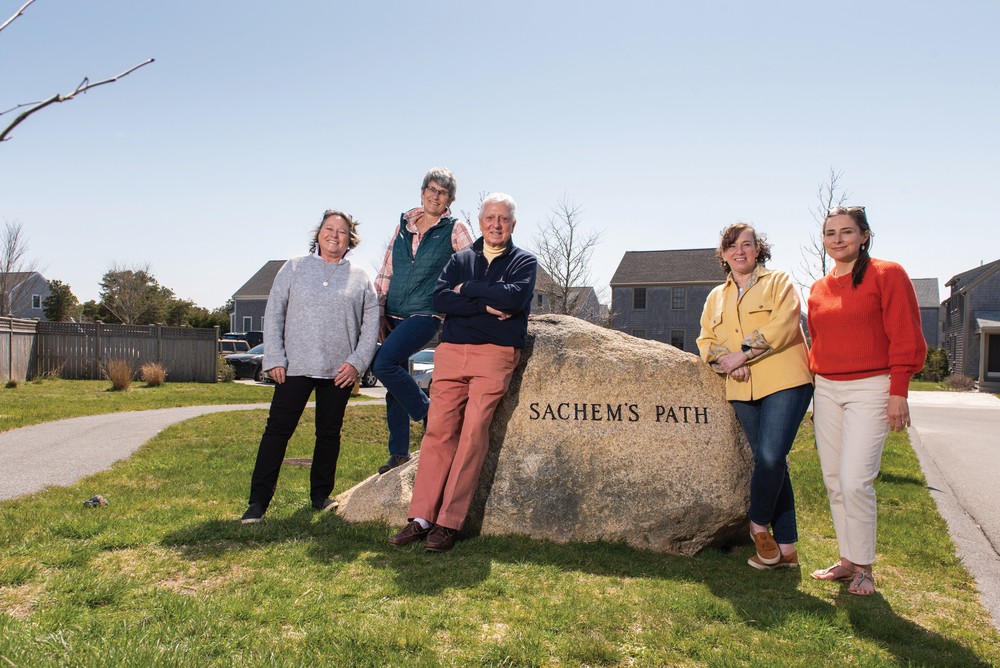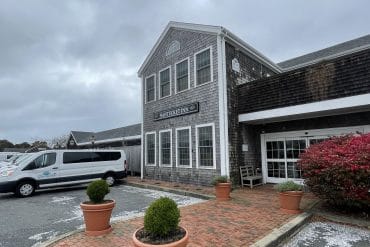More than $16 million in spending and borrowing for affordable housing initiatives was authorized by Nantucket voters during Saturday’s Annual Town Meeting, as the island’s housing crisis was an undercurrent throughout the affair. Whether it was budgets, bylaws, or zoning, the conversations seemed to revolve around Nantucket’s affordable housing crunch.
Yet the search for a dedicated, recurring revenue stream to fund land acquisition and construction of affordable housing proved elusive once again at Town Meeting. Both Article 38, which would have siphoned off two-thirds of the town’s room occupancy taxes for housing projects, and Article 97, which sought to reallocate 25 percent of the Land Bank’s annual revenue from the 2 percent transfer tax, were defeated.
But island housing advocates came away mostly ecstatic having secured more than $16 million in spending and borrowing, although nearly half of that amount must still be approved again at the polls during the Annual Town Election next Tuesday.
“I don’t know how you could not be thrilled with the outcome,” said Tucker Holland, the town’s municipal housing director.
The $16 million-plus for affordable housing authorized on Saturday comes on the heels of Town Meeting’s approval of $20 million in taxpayer funds at the 2019 Annual Town Meeting for the Neighborhood First program, which aims to produce affordable workforce housing inventory on the island. The Affordable Housing Trust has used those funds to buy properties on Orange Street, Fairgrounds Road, and in Gouin Village off Vesper Lane.
“The amount of funding being awarded was so encouraging,” said Anne Kuszpa, executive director of the non-profit Housing Nantucket. “It was encouraging to see those articles pass without much debate about how it is going to be spent. That was surprising to me, but it reinforces us. That’s good, positive feedback. The town and the voters feel comfortable with how the Neighborhood First dollars were spent and appreciate the progress that has been made to managing the SHI list and keeping us in Safe Harbor.”
The town, through the Affordable Housing Trust, is seeking to subsidize and build affordable rental units that will qualify to be counted among the town’s Subsidized Housing Inventory (SHI), a list that is used to measure a community’s stock of low- or moderate-income housing for the purposes of the state 40B law. Cities and towns with less than 10 percent of their housing stock meeting the SHI criteria are subject to 40B affordable housing developments that allow greater density than allowed by zoning if 20 to 25 percent of the units meet the state’s definition of affordable housing. Towns that reach 10 percent of their housing stock meeting the SHI criteria or demonstrate meaningful progress toward it are exempted, and granted “safe harbor” from 40B developments.
While there was cause for celebration of the results of this year’s Town Meeting, some members of the Affordable Housing Trust lamented that two potential dedicated funding streams were not attained. Brooke Mohr, the vice-chair of the Affordable Housing Trust and sponsor of the petition to reallocate 25 percent of Land Bank revenue, said she was disappointed it did not pass, but believes the conversations that happened around affordable housing during the winter and spring generated more attention and ultimately more funding.
“I left Town Meeting both sad and hopeful,” Mohr said. “The needle has moved, and I’m grateful for that.”
Still, she said, there’s a lot more work to do.
“There’s a disconnect, or inability, for some folks to see how much the market has changed, how it’s different from their experience, and why it’s important to make an investment as a community in something like Article 97,” Mohr said. “There’s a discrepancy in this market that’s going to destroy the year-round community if we don’t make structural change.”
Affordable Housing Trust member Allyson Mitchell said she was pleased, overall, with the support for the four warrant articles that contained funding for housing that were approved last weekend, especially the town incorporating nearly half a million into the general fund operating budget for the municipal Housing Office operations. “Once they did that a few months ago, I knew that the town was ready to commit to solutions,” Mitchell said.
But the defeat of Article 97, Mohr’s petition to reallocate a portion of the Land Bank Revenue, was still tough to take, she said.
“The demise of Article 97, which was near and dear to my heart, made me a little sad but I saw it coming,” Mitchell said in an e-mail. “The issue is that I see the building crisis in the 1980s as identical to the housing crisis we’re seeing now, but a lot of people don’t. If the instability and insecurity of housing isn’t something that has affected a Nantucketer personally, it’s challenging for them to have a full grasp of how far the problem really reaches. In fact, I was about to speak on behalf of the article on Saturday and the discussion literally got tabled as the volunteer next to me raised her flag. I looked and saw that the woman who moved to end discussion is someone who has known me since I was one year old. And I guarantee if you asked her about my living situation on Nantucket, she’d probably think it was fine and stable. She probably thinks because I work real hard and I’ve lived here for 36 years and I’m married to a firefighter whose been working for the town for 15 years that I must be ok. And had she decided to keep her hand down for one more speaker, she would have heard me tell my story to the whole Town Meeting and I would have waved my pregnant belly around for all to see and I would have said ‘You can see the Land Bank signs on the side of the road everywhere, but there are no signs with the face of the housing crisis on them. That’s a problem, because there should be.’ And maybe I could have changed her mind.”
Holland, the municipal housing director, said that the Article 97 debate, even if it did not end with its passage, spurred support for the other warrant articles.
“I’m not sure we would have had the funding levels as well as the unanimous support for (articles) 8, 10, 24, and 32 without the presence of (article) 97,” Holland said. “The fact you had a lot of folks from the conservation world also recognizing the importance of addressing the housing issue with adequate funding, that was terrific as well.”
The spending and borrowing that was authorized on Saturday will provide the resources to move a number of affordable housing projects forward, advocates said. Here’s how the $16 million-plus breaks down:
- Article 8: $485,000 in the general fund budget for municipal Housing Office operations (staff, outreach, marketing and training) and the Closing Cost Assistance program.
- Article 10: $1.6 million capital expenditure directly to the Affordable Housing Trust, and authorization for bonding up to $6.5 million, to supporting housing projects by Housing Nantucket, Habitat for Humanity, and the town that are SHI-eligible.
- Article 24: a $7.5 million debt exclusion override to the Affordable Housing Trust to subsidize town-sponsored year-round affordable housing projects that are SHI-eligible. This funding requires additional voter approval at the polls on June 15.
- Article 32: $800,000 from the Community Preservation Committee to the Affordable Housing Trust for subsidies of the Habitat for Humanity and Housing Nantucket affordable rental and ownership housing developments.






